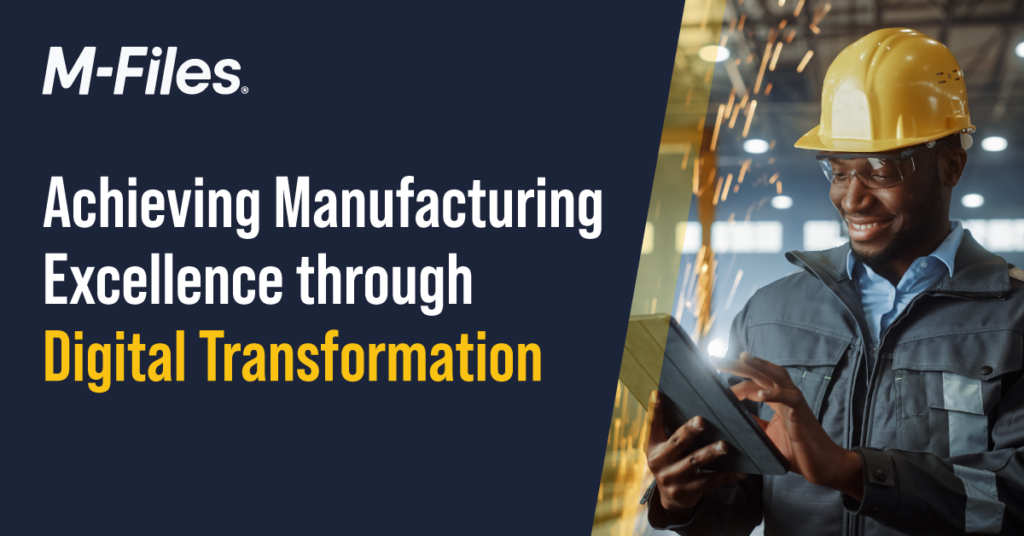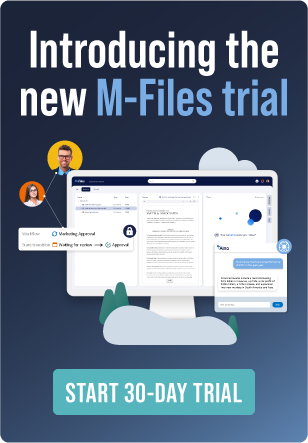Sustainable Growth and Regulatory Clarity in Manufacturing
Regulatory Compliance & AI: Keys to Sustainable Manufacturing in 2025

By Samppa Lahtinen, Senior Manager of Industry Solutions at M-Files
In 2025, AI agents will revolutionize manufacturing with predictive maintenance and autonomous decision-making, optimizing processes and reducing downtime.
How Regulatory Compliance Affects Sustainable Manufacturing
Increasing regulations around sustainability and environmental impact will force manufacturers to adapt their processes and materials. In some regions, foundational laws are just beginning to be implemented to enable green hydrogen or offshore wind investments. In the year ahead, we expect these regulatory barriers to clear, paving the way for increased investments and a rise in new projects. As a result, manufacturers will need to adopt knowledge work automation solutions to scale and standardize operations for greater efficiency and repeatability.
How AI-Driven Automation is Reshaping Manufacturing Processes
The integration of advanced technologies like IoT, AI, and automation into existing systems will remain a significant challenge in digital transformation for manufacturing companies. Currently, we find ourselves in the upward phase of the AI hype cycle, where expectations may be running ahead of practical reality. In the year ahead, businesses will come to realize the importance of strengthening foundational systems and integrations, as these will support AI agents in the same way they empower human workers. While routine task automation will free employees to focus on more strategic work, we can also expect substantial advancements in AI capabilities, bringing about real, transformative change.
Industrial AI Adoption: Challenges and Opportunities
The transformative impact of AI agents in manufacturing is reshaping the industry by enhancing efficiency, precision, and adaptability. AI agents are revolutionizing industrial operations through advanced data analytics, predictive maintenance, and autonomous decision-making. These intelligent systems enable manufacturers to optimize production processes, reduce downtime, and improve product quality. As the technological landscape rapidly evolves, it is crucial for manufacturers to embrace AI-driven innovations to remain competitive and meet the demands of a dynamic market. Adapting to these advancements not only ensures operational excellence but also paves the way for sustainable growth and innovation in the manufacturing sector.
Manufacturing Jobs and AI: How to Stay Competitive with Digital Transformation
With the integration of AI in manufacturing, job roles are expected to evolve significantly by 2025. As AI takes over repetitive and manual tasks, there will be a greater demand for high-skill roles such as AI specialists, data analysts, and robotics engineers. Workers will need to develop new skills to manage and maintain AI systems, focusing on strategic and creative tasks. AI will foster more collaborative work environments, necessitating strong communication and teamwork skills. The rapid pace of AI advancements will require continuous learning and upskilling to stay relevant. Overall, this evolution will lead to a more skilled, efficient, and collaborative workforce.




